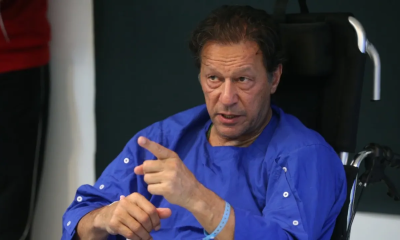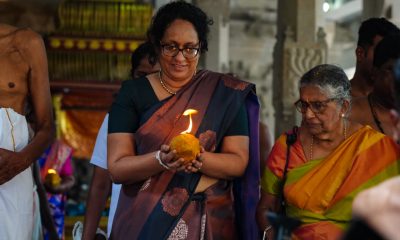Features
Meaning of Openness in Education in Sri Lanka
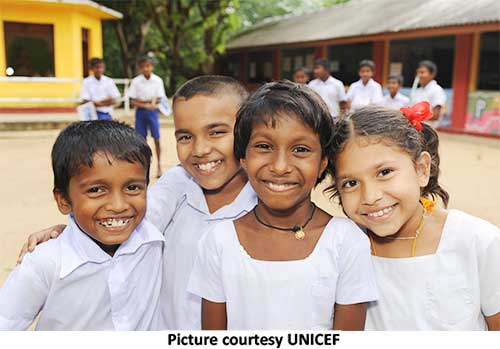
by Liyanage Amarakeerthi
(Speech, delivered via Zoom at the Convocation of the Open University,
Sri Lanka, on 15th of December, 2020)
Chancellor, Vice Chancellor, Registrars, Deans, Directors, librarian, professors, lecturers, other dignitaries , graduating students, ladies and gentlemen,
It is with a sense of pride and gratitude that I deliver the convocation address of this year at the Open University. We are in the middle of a pandemic. In addition to taking and harming many lives all over, the pandemic has robbed me of the opportunity of standing in front of you in a grand convocation hall looking at your faces lighted with happiness. But today, we are celebrating the occasion, in a historic manner. Let us collectively show that human spirit will cope with and survive any pandemic.
The epidemic has been destructive indeed. Some scholars argue that access to education will fall back to the level in 1980s, and, in some countries, 9 out of 10 children will fall out of schools. In our country, too, the long–term impact of the epidemic on education is likely to be much worse than we think. Perhaps, the need for the kind of education provided by the Open University will be greater in Sri Lanka after Covid-19.
The Open University has a special place in my heart for several reasons. For one, I have some of my close friends at the Open University, and they are among the most renowned literary writers, scholars and intellectuals in the country. Secondly, perhaps more importantly, the concept of education at the Open University is also dear to my heart. Teaching at a conventional university, I have had the luxury of meeting and teaching a group of brightest young men and women in our country. But all of them come into the university through a single, narrow opening called GCE (A/L). I wish I had students entering my own university through other legitimate doors making our student population even more diverse.
At crucial points in our lives, we all sit down to reflect on the way things have been, and at those times, we often look for the help of new sources of wisdom in order to reorganize ourselves. At such moments, if someone wants to return to formal education that person should be able to find her way there. The Open University has been a haven for those who rethink, reconsider, reevaluate, and reorganize their lives. A society is truly free, truly just, truly democratic, when people have a second chance – another opportunity of taking a shot at a better life, a qualitatively different life. The Open University has provided many of you that chance. A great Sinhala poet, Ariyawansha Ranavira said in a short poem,
බොහෝ විට
බොහෝ දෙන
යළි එති කවිය වෙත
මහළු හිස් නමමින
Often times
many people
return to poetry
bending their
aging heads down.
Not just to poetry, people do return to many good things later in their lives. As poetry, all areas of life should be beautifully prepared to welcome those who return. Not just bending their heads over but the heads held high, people should be able to return to formal education.
Other meanings of openness
Let me now introduce a few other meanings of ‘openness’ I like to see in education. For us in Sri Lanka, education is not just a mode of acquiring knowledge and wisdom. It is the greatest social equalizer in modern Sri Lanka. Ours is an extremely unequal society. We are unequal in ethnicity, religion, gender, class, caste, region and so on. Education was the most important mechanism that has brought about at least some sense of equality in our society. Let me give you a quick example. In 1881, female literacy in Ceylon was 3%; By 1921, it had increased up to 21%. When the University College of Ceylon was established in 1921, there were only four female students in the first intake. Just four!
Nearly hundred years later, at the faculty of arts, the University of Peradeniya, 85% or more are female students. Still in many areas, women are underrepresented and underemployed. But if it wasn’t for free education the inequality between men and women could have been so much worse. Graduating ladies today, imagine living in a country where female literacy rate is just 3 %. Graduating gentlemen, I hope you also don’t want to live in such a country.
All of us––teachers, students and administrators––must remember that free education has been the greatest social leveller in our country. So, we must not forget the significance of leaving it open to people from diverse backgrounds.
Openness of other kinds
Let me touch on another aspect of being open in education. Human beings struggle with natural and social conditions everywhere in order to create a life with justice, equality and freedom; in order to create a finer co-existence with the natural world. In the process, human beings create knowledge everywhere and at different circumstances. Being open to such knowledge, without being parochial, is one key aspect of being open in education.
In a time of celebration of cultural difference, one of our challenges is to recognize the shared history of humanity. What we have in common is often overlooked, in celebration of uniqueness and singularity. Throughout human history human communities have had numerous connections with each other. In terms of sharing knowledge and culture, globalization is much older than we think it is. A goal of our education should be to see why and how those connections are made.
Some of those similarities come into being because we humans are similar to one another in our biological hardwiring. Roughly at the same time in history, human beings everywhere have decided to put an end to, their hunter-gathering lives and remain at one place farming a garden and raising a family. This similarity occurs because we human animals are alike in our basic nature. Interestingly, in nearly all those places women were the ones to domesticate plants and animals. Perhaps, they might have told themselves, ‘now it is enough of wandering dragging these children around. Now, we want to stay foot and make home.
That thought, womanly thought, motherly thought, if you will, might have been a key thought that led to the creation of present civilizations. That thought may have unwittingly end up domesticating women themselves.
We may have discovered farming at different places unknown to each other. But our connections have developed to such a degree that manioc/cassava, potato, sweet potato domesticated in South America, are our own now, several centuries later. Though we have borrowed potato from South America, we have more than four hundred ways of cooking it in South Asia.
In our higher education, there should be an openness of another kind. Let me briefly touch on it and it will be the last point I will be making my speech. In our education system, different fields of studies need to be open to each other and to develop conversations on key concepts in those specific fields. Working in the field of literary and cultural studies, I should be able to engage in serious discussions with scholars in natural sciences, for example. Our education needs to foster such conversations.
Rational Thought and Emotion
Descartes made an error in over emphasizing rational mind and considering other sensory experience to be secondary in cognition. Perhaps, it is the case in cognition; but cognition, acquiring rational knowledge, is only a part of human existence. We are human beings not only because we think, we are human beings because we feel – emotionally feel. Recent studies in neuroscience have shown that emotions, our feelings, are important even for our rational thinking. American neuroscientist Antonio Damascio’s research on brain-damaged patients has demonstrated that patients with injuries in areas in their brains that deal with emotions are not capable of making, rational decisions about appropriate behavior and so on. In our brain, the areas that deal with emotions are physically separated from the areas that deal with reason and logic. Though physically located in separate domains, the emotion-compartment of the brain is required for the reason-compartment in making sound decisions. Damascio’s eye-opening book, Descartes’ Error, can be an invaluable guide in rethinking our education and in opening the doors of our specific fields to other fields.
Moreover, Descartes’ error has led to a kind of anthropocentricism where human beings are made supreme on the ground that they alone have rational consciousness. Recent studies have shown that even trees have their own collective consciousness, and they ‘consciously’ act for survival. For example, when one tree is attacked by a swarm of locusts, that tree emits a hormone-like compound so that wind can take the news of attack to other trees. And those trees now have time to emit another chemical compound, that might repel the locusts. As long as we are closed in our educational habits and habitats, we cannot know that trees do communicate with one another, perhaps even with us. This is another reason for me to argue for more openness in education.
Such openness is not possible, if scholars are like the lion of Sinhabahu, the play, who practically imprison their intellectual progeny in the caves of narrowly specialized knowledge. We need a generation of Sinhabahus who are capable of holistic thinking not just of breaking the rock door of the cave, the compartmentalized knowledge.
In our times, specially learned person is able to put his specialized knowledge in meaningful conversations with other areas of human knowledge. Respected professors in natural sciences, attending this convocation, please pardon me if I am stepping into your own areas of specialty. And I am making a case of such trespassing, anyway. Biologists talk about a part of our brain called “amygdala”. When we accidentally chew on, rotten food or something, a chemical reaction occurs in that part of the brain and we instantly throw up that food even before conscious thought occurs.
Here is what fascinates me: the same part of human brain gets chemically activated, when we see something morally disgusting, such as an old woman is being physically attacked. Now, see brain chemistry of the faculty of science, and the ethics of the faculty of arts, are much more connected than we have made them look. I learned these connections from a stunning book by Robert Sapolsky, Behave: The Biology of Humans at Our Best and Worst.
Ladies and gentlemen, you are graduating from the Open University today. I wanted to stir your mind a bit about possible meanings of ‘openness’ in education. I hope you will be able to strive for more open conversations at your world of work and the world of leisure. After all, the idea of openness is in the name of your own university. You are graduating today taking that name with you. That alone makes you special.
From Peradeniya, I send you all, all the good wishes!
Thank you.
(Liyanage Amarakeerthi is a professor at University of Peradeniya)
Features
Lasting solutions require consensus
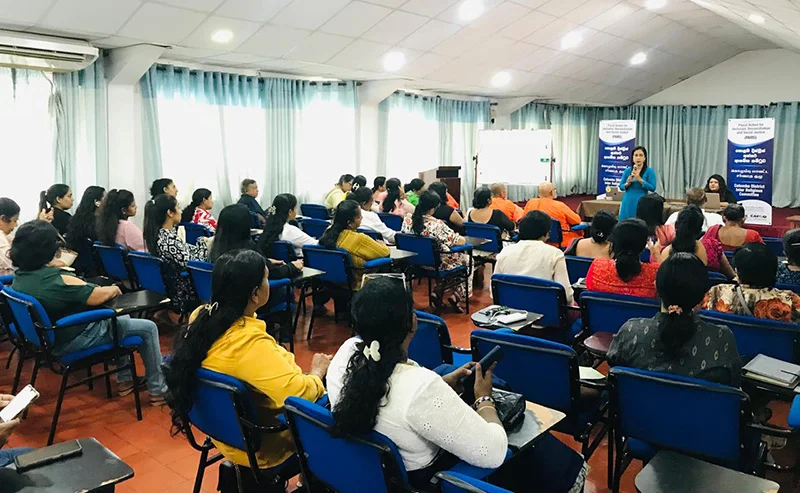
Problems and solutions in plural societies like Sri Lanka’s which have deep rooted ethnic, religious and linguistic cleavages require a consciously inclusive approach. A major challenge for any government in Sri Lanka is to correctly identify the problems faced by different groups with strong identities and find solutions to them. The durability of democratic systems in divided societies depends less on electoral victories than on institutionalised inclusion, consultation, and negotiated compromise. When problems are defined only through the lens of a single political formation, even one that enjoys a large electoral mandate, such as obtained by the NPP government, the policy prescriptions derived from that diagnosis will likely overlook the experiences of communities that may remain outside the ruling party. The result could end up being resistance to those policies, uneven implementation and eventual political backlash.
A recent survey done by the National Peace Council (NPC), in Jaffna, in the North, at a focus group discussion for young people on citizen perception in the electoral process, revealed interesting developments. The results of the NPC micro survey support the findings of the national survey by Verite Research that found that government approval rating stood at 65 percent in early February 2026. A majority of the respondents in Jaffna affirm that they feel safer and more fairly treated than in the past. There is a clear improving trend to be seen in some areas, but not in all. This survey of predominantly young and educated respondents shows 78 percent saying livelihood has improved and an equal percentage feeling safe in daily life. 75 percent express satisfaction with the new government and 64 percent believe the state treats their language and culture fairly. These are not insignificant gains in a region that bore the brunt of three decades of war.
Yet the same survey reveals deep reservations that temper this optimism. Only 25 percent are satisfied with the handling of past issues. An equal percentage see no change in land and military related concerns. Most strikingly, almost 90 percent are worried about land being taken without consent for religious purposes. A significant number are uncertain whether the future will be better. These negative sentiments cannot be brushed aside as marginal. They point to unresolved structural questions relating to land rights, demilitarisation, accountability and the locus of political power. If these issues are not addressed sooner rather than later, the current stability may prove fragile. This suggests the need to build consensus with other parties to ensure long-term stability and legitimacy, and the need for partnership to address national issues.
NPP Absence
National or local level problems solving is unlikely to be successful in the longer term if it only proceeds from the thinking of one group of people even if they are the most enlightened. Problem solving requires the engagement of those from different ethno-religious, caste and political backgrounds to get a diversity of ideas and possible solutions. It does not mean getting corrupted or having to give up the good for the worse. It means testing ideas in the public sphere. Legitimacy flows not merely from winning elections but from the quality of public reasoning that precedes decision-making. The experience of successful post-conflict societies shows that long term peace and development are built through dialogue platforms where civil society organisations, political actors, business communities, and local representatives jointly define problems before negotiating policy responses.
As a civil society organisation, the National Peace Council engages in a variety of public activities that focus on awareness and relationship building across communities. Participants in those activities include community leaders, religious clergy, local level government officials and grassroots political party representatives. However, along with other civil society organisations, NPC has been finding it difficult to get the participation of members of the NPP at those events. The excuse given for the absence of ruling party members is that they are too busy as they are involved in a plenitude of activities. The question is whether the ruling party members have too much on their plate or whether it is due to a reluctance to work with others.
The general belief is that those from the ruling party need to get special permission from the party hierarchy for activities organised by groups not under their control. The reluctance of the ruling party to permit its members to join the activities of other organisations may be the concern that they will get ideas that are different from those held by the party leadership. The concern may be that these different ideas will either corrupt the ruling party members or cause dissent within the ranks of the ruling party. But lasting reform in a plural society requires precisely this exposure. If 90 percent of surveyed youth in Jaffna are worried about land issues, then engaging them, rather than shielding party representatives from uncomfortable conversations, is essential for accurate problem identification.
North Star
The Leader of the Lanka Sama Samaja Party (LSSP), Prof Tissa Vitarana, who passed away last week, gave the example for national level problem solving. As a government minister he took on the challenge the protracted ethnic conflict that led to three decades of war. He set his mind on the solution and engaged with all but never veered from his conviction about what the solution would be. This was the North Star to him, said his son to me at his funeral, the direction to which the Compass (Malimawa) pointed at all times. Prof Vitarana held the view that in a diverse and plural society there was a need to devolve power and share power in a structured way between the majority community and minority communities. His example illustrates that engagement does not require ideological capitulation. It requires clarity of purpose combined with openness to dialogue.
The ethnic and religious peace that prevails today owes much to the efforts of people like Prof Vitarana and other like-minded persons and groups which, for many years, engaged as underdogs with those who were more powerful. The commitment to equality of citizenship, non-racism, non-extremism and non-discrimination, upheld by the present government, comes from this foundation. But the NPC survey suggests that symbolic recognition and improved daily safety are not enough. Respondents prioritise personal safety, truth regarding missing persons, return of land, language use and reduction of military involvement. They are also asking for jobs after graduation, local economic opportunity, protection of property rights, and tangible improvements that allow them to remain in Jaffna rather than migrate.
If solutions are to be lasting they cannot be unilaterally imposed by one party on the others. Lasting solutions cannot be unilateral solutions. They must emerge from a shared diagnosis of the country’s deepest problems and from a willingness to address the negative sentiments that persist beneath the surface of cautious optimism. Only then can progress be secured against reversal and anchored in the consent of the wider polity. Engaging with the opposition can help mitigate the hyper-confrontational and divisive political culture of the past. This means that the ruling party needs to consider not only how to protect its existing members by cloistering them from those who think differently but also expand its vision and membership by convincing others to join them in problem solving at multiple levels. This requires engagement and not avoidance or withdrawal.
by Jehan Perera
Features
Unpacking public responses to educational reforms
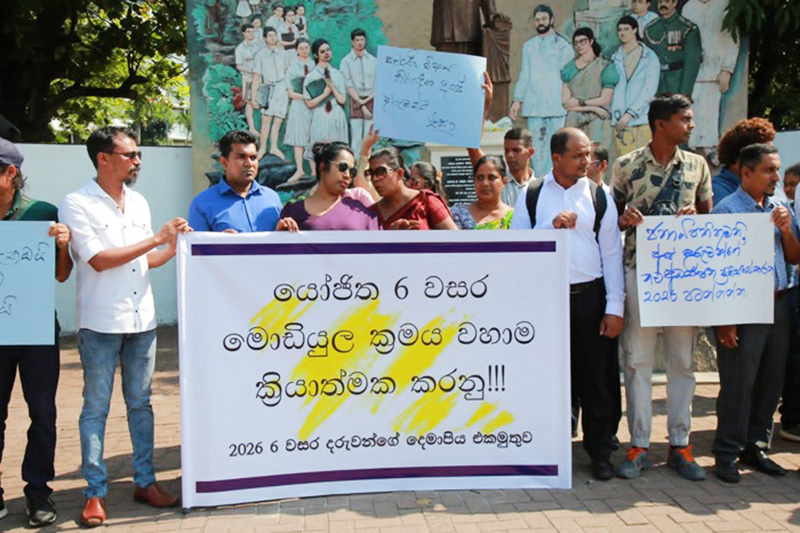
 As the debate on educational reforms rages, I find it useful to pay as much attention to the reactions they have excited as we do to the content of the reforms. Such reactions are a reflection of how education is understood in our society, and this understanding – along with the priorities it gives rise to – must necessarily be taken into account in education policy, including and especially reform. My aim in this piece, however, is to couple this public engagement with critical reflection on the historical-structural realities that structure our possibilities in the global market, and briefly discuss the role of academics in this endeavour.
As the debate on educational reforms rages, I find it useful to pay as much attention to the reactions they have excited as we do to the content of the reforms. Such reactions are a reflection of how education is understood in our society, and this understanding – along with the priorities it gives rise to – must necessarily be taken into account in education policy, including and especially reform. My aim in this piece, however, is to couple this public engagement with critical reflection on the historical-structural realities that structure our possibilities in the global market, and briefly discuss the role of academics in this endeavour.
Two broad reactions
The reactions to the proposed reforms can be broadly categorised into ‘pro’ and ‘anti’. I will discuss the latter first. Most of the backlash against the reforms seems to be directed at the issue of a gay dating site, accidentally being linked to the Grade 6 English module. While the importance of rigour cannot be overstated in such a process, the sheer volume of the energies concentrated on this is also indicative of how hopelessly homophobic our society is, especially its educators, including those in trade unions. These dispositions are a crucial part of the reason why educational reforms are needed in the first place. If only there was a fraction of the interest in ‘keeping up with the rest of the world’ in terms of IT, skills, and so on, in this area as well!
Then there is the opposition mounted by teachers’ trade unions and others about the process of the reforms not being very democratic, which I (and many others in higher education, as evidenced by a recent statement, available at https://island.lk/general-educational-reforms-to-what-purpose-a-statement-by-state-university-teachers/ ) fully agree with. But I earnestly hope the conversation is not usurped by those wanting to promote heteronormativity, further entrenching bigotry only education itself can save us from. With this important qualification, I, too, believe the government should open up the reform process to the public, rather than just ‘informing’ them of it.
It is unclear both as to why the process had to be behind closed doors, as well as why the government seems to be in a hurry to push the reforms through. Considering other recent developments, like the continued extension of emergency rule, tabling of the Protection of the State from Terrorism Act (PSTA), and proposing a new Authority for the protection of the Central Highlands (as is famously known, Authorities directly come under the Executive, and, therefore, further strengthen the Presidency; a reasonable question would be as to why the existing apparatus cannot be strengthened for this purpose), this appears especially suspect.
Further, according to the Secretary to the MOE Nalaka Kaluwewa: “The full framework for the [education] reforms was already in place [when the Dissanayake government took office]” (https://www.wsws.org/en/articles/2025/08/12/wxua-a12.html, citing The Morning, July 29). Given the ideological inclinations of the former Wickremesinghe government and the IMF negotiations taking place at the time, the continuation of education reforms, initiated in such a context with very little modification, leaves little doubt as to their intent: to facilitate the churning out of cheap labour for the global market (with very little cushioning from external shocks and reproducing global inequalities), while raising enough revenue in the process to service debt.
This process privileges STEM subjects, which are “considered to contribute to higher levels of ‘employability’ among their graduates … With their emphasis on transferable skills and demonstrable competency levels, STEM subjects provide tools that are well suited for the abstraction of labour required by capitalism, particularly at the global level where comparability across a wide array of labour markets matters more than ever before” (my own previous piece in this column on 29 October 2024). Humanities and Social Sciences (HSS) subjects are deprioritised as a result. However, the wisdom of an education policy that is solely focused on responding to the global market has been questioned in this column and elsewhere, both because the global market has no reason to prioritise our needs as well as because such an orientation comes at the cost of a strategy for improving the conditions within Sri Lanka, in all sectors. This is why we need a more emancipatory vision for education geared towards building a fairer society domestically where the fruits of prosperity are enjoyed by all.
The second broad reaction to the reforms is to earnestly embrace them. The reasons behind this need to be taken seriously, although it echoes the mantra of the global market. According to one parent participating in a protest against the halting of the reform process: “The world is moving forward with new inventions and technology, but here in Sri Lanka, our children are still burdened with outdated methods. Opposition politicians send their children to international schools or abroad, while ours depend on free education. Stopping these reforms is the lowest act I’ve seen as a mother” (https://www.newsfirst.lk/2026/01/17/pro-educational-reforms-protests-spread-across-sri-lanka). While it is worth mentioning that it is not only the opposition, nor in fact only politicians, who send their children to international schools and abroad, the point holds. Updating the curriculum to reflect the changing needs of a society will invariably strengthen the case for free education. However, as mentioned before, if not combined with a vision for harnessing education’s emancipatory potential for the country, such a move would simply translate into one of integrating Sri Lanka to the world market to produce cheap labour for the colonial and neocolonial masters.
According to another parent in a similar protest: “Our children were excited about lighter schoolbags and a better future. Now they are left in despair” (https://www.newsfirst.lk/2026/01/17/pro-educational-reforms-protests-spread-across-sri-lanka). Again, a valid concern, but one that seems to be completely buying into the rhetoric of the government. As many pieces in this column have already shown, even though the structure of assessments will shift from exam-heavy to more interim forms of assessment (which is very welcome), the number of modules/subjects will actually increase, pushing a greater, not lesser, workload on students.
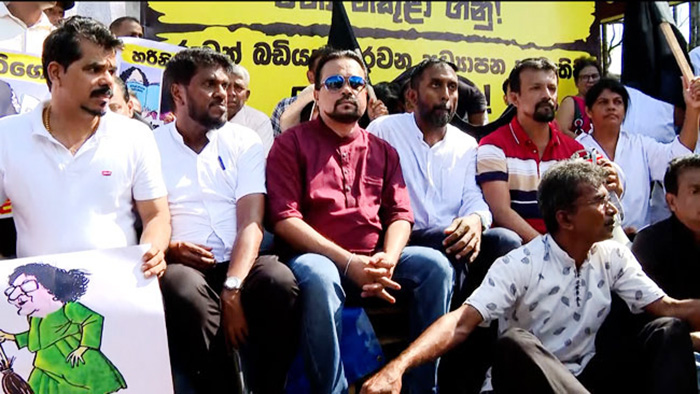
A file photo of a satyagraha against education reforms
What kind of education?
The ‘pro’ reactions outlined above stem from valid concerns, and, therefore, need to be taken seriously. Relatedly, we have to keep in mind that opening the process up to public engagement will not necessarily result in some of the outcomes, those particularly in the HSS academic community, would like to see, such as increasing the HSS component in the syllabus, changing weightages assigned to such subjects, reintroducing them to the basket of mandatory subjects, etc., because of the increasing traction of STEM subjects as a surer way to lock in a good future income.
Academics do have a role to play here, though: 1) actively engage with various groups of people to understand their rationales behind supporting or opposing the reforms; 2) reflect on how such preferences are constituted, and what they in turn contribute towards constituting (including the global and local patterns of accumulation and structures of oppression they perpetuate); 3) bring these reflections back into further conversations, enabling a mutually conditioning exchange; 4) collectively work out a plan for reforming education based on the above, preferably in an arrangement that directly informs policy. A reform process informed by such a dialectical exchange, and a system of education based on the results of these reflections, will have greater substantive value while also responding to the changing times.
Two important prerequisites for this kind of endeavour to succeed are that first, academics participate, irrespective of whether they publicly endorsed this government or not, and second, that the government responds with humility and accountability, without denial and shifting the blame on to individuals. While we cannot help the second, we can start with the first.
Conclusion
For a government that came into power riding the wave of ‘system change’, it is perhaps more important than for any other government that these reforms are done for the right reasons, not to mention following the right methods (of consultation and deliberation). For instance, developing soft skills or incorporating vocational education to the curriculum could be done either in a way that reproduces Sri Lanka’s marginality in the global economic order (which is ‘system preservation’), or lays the groundwork to develop a workforce first and foremost for the country, limited as this approach may be. An inextricable concern is what is denoted by ‘the country’ here: a few affluent groups, a majority ethno-religious category, or everyone living here? How we define ‘the country’ will centrally influence how education policy (among others) will be formulated, just as much as the quality of education influences how we – students, teachers, parents, policymakers, bureaucrats, ‘experts’ – think about such categories. That is precisely why more thought should go to education policymaking than perhaps any other sector.
(Hasini Lecamwasam is attached to the Department of Political Science, University of Peradeniya).
Kuppi is a politics and pedagogy happening on the margins of the lecture hall that parodies, subverts, and simultaneously reaffirms social hierarchies.
Features
Chef’s daughter cooking up a storm…

 Don Sherman was quite a popular figure in the entertainment scene but now he is better known as the Singing Chef and that’s because he turns out some yummy dishes at his restaurant, in Rajagiriya.
Don Sherman was quite a popular figure in the entertainment scene but now he is better known as the Singing Chef and that’s because he turns out some yummy dishes at his restaurant, in Rajagiriya.
However, now the spotlight is gradually focusing on his daughter Emma Shanaya who has turned out to be a very talented singer.
In fact, we have spotlighted her in The Island a couple of times and she is in the limelight, once gain.
When Emma released her debut music video, titled ‘You Made Me Feel,’ the feedback was very encouraging and at that point in time she said “I only want to keep doing bigger and greater things and ‘You Made Me Feel’ is the very first step to a long journey.”
Emma, who resides in Melbourne, Australia, is in Sri Lanka, at the moment, and has released her very first Sinhala single.
“I’m back in Sri Lanka with a brand new single and this time it’s a Sinhalese song … yes, my debut Sinhala song ‘Sanasum Mawana’ (Bloom like a Flower).
“This song is very special to me as I wrote the lyrics in English and then got it translated and re-written by my mother, and my amazing and very talented producer Thilina Boralessa. Thilina also composed the music, and mix and master of the track.”
Emma went on to say that instead of a love song, or a young romance, she wanted to give the Sri Lankan audience a debut song with some meaning and substance that will portray her, not only as an artiste, but as the person she is.
Says Emma: “‘Sanasum Mawana’ is about life, love and the essence of a woman. This song is for the special woman in your life, whether it be your mother, sister, friend, daughter or partner. I personally dedicate this song to my mother. I wouldn’t be where I am right now if it weren’t for her.”
On Friday, 30th January, ‘Sanasum Mawana’ went live on YouTube and all streaming platforms, and just before it went live, she went on to say, they had a wonderful and intimate launch event at her father’s institute/ restaurant, the ‘Don Sherman Institute’ in Rajagiriya.
It was an evening of celebration, good food and great vibes and the event was also an introduction to Emma Shanaya the person and artiste.
Emma also mentioned that she is Sri Lanka for an extended period – a “work holiday”.
“I would like to expand my creativity in Sri Lanka and see the opportunities the island has in store for me. I look forward to singing, modelling, and acting opportunities, and to work with some wonderful people.
“Thank you to everyone that is by my side, supporting me on this new and exciting journey. I can’t wait to bring you more and continue to bloom like a flower.”
-

 Life style3 days ago
Life style3 days agoMarriot new GM Suranga
-

 Business2 days ago
Business2 days agoMinistry of Brands to launch Sri Lanka’s first off-price retail destination
-

 Features3 days ago
Features3 days agoMonks’ march, in America and Sri Lanka
-

 Midweek Review7 days ago
Midweek Review7 days agoA question of national pride
-

 Business7 days ago
Business7 days agoAutodoc 360 relocates to reinforce commitment to premium auto care
-

 Opinion6 days ago
Opinion6 days agoWill computers ever be intelligent?
-

 Features3 days ago
Features3 days agoThe Rise of Takaichi
-

 Features3 days ago
Features3 days agoWetlands of Sri Lanka:


